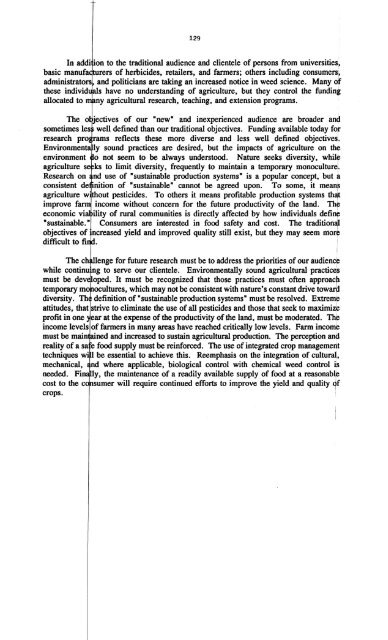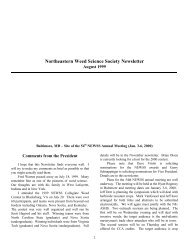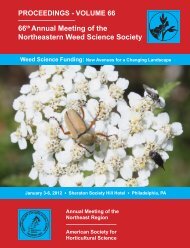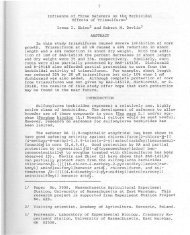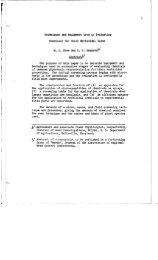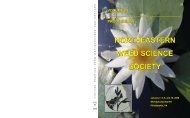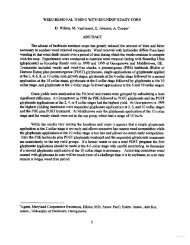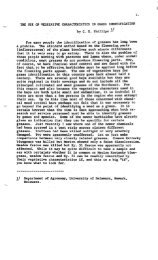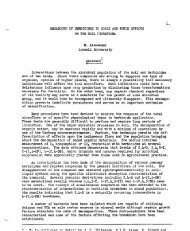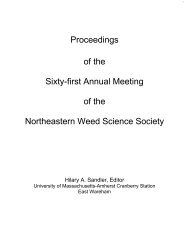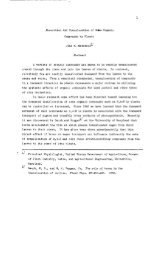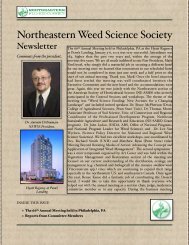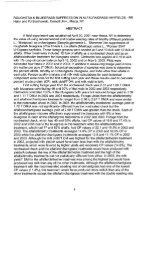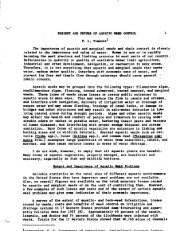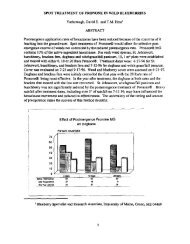Vol. 51â1997 - NorthEastern Weed Science Society
Vol. 51â1997 - NorthEastern Weed Science Society
Vol. 51â1997 - NorthEastern Weed Science Society
You also want an ePaper? Increase the reach of your titles
YUMPU automatically turns print PDFs into web optimized ePapers that Google loves.
129<br />
In addi .on to the traditional audience and clientele of persons from universities,<br />
basic manufa urers of herbicides, retailers, and farmers; others including consumers,<br />
administrators and politicians are taking an increased notice in weed science. Many or<br />
these individ s have no understanding of agriculture, but they control the funding<br />
allocated to ny agricultural research, teaching, and extension programs.<br />
The 0 ~ectives of our "new" and inexperienced audience are broader and<br />
sometimes les well defined than our traditional objectives. Funding available today for<br />
research pro ms reflects these more diverse and less well defined objectives;<br />
Environmen ly sound practices are desired, but the impacts of agriculture on the<br />
environment 0 not seem to be always understood. Nature seeks diversity, whil~<br />
agriculture s ks to limit diversity, frequently to maintain a temporary monoculturel<br />
Research on nd use of "sustainable production systems" is a popular concept, but a<br />
consistent de nition of "sustainable" cannot be agreed upon. To some, it means<br />
agriculture w thout pesticides. To others it means profitable production systems th~t<br />
improve f income without concern for the future productivity of the land. The<br />
economic vi ility of rural communities is directly affected by how individuals define<br />
"sustainable." Consumers are interested in food safety and cost. The traditionsf<br />
objectives of ncreased yield and improved quality still exist, but they may seem more<br />
difficult to fi<br />
The ch lenge for future research must be to address the priorities of our audience<br />
while continu ng to serve our clientele. Environmentally sound agricultural practices<br />
must be dev oped. It must be recognized that those practices must often approach<br />
temporary mo ocultures, which may not be consistent with nature's constant drive toward<br />
diversity. Th definition of ..sustainable production systems" must be resolved. Extreme<br />
attitudes, that strive to eliminate the use of all pesticides and those that seek to maximize<br />
profit in one ear at the expense of the productivity of the land, must be moderated. The<br />
income levels of farmers in many areas have reached critically low levels. Farm income<br />
must be main .ned and increased to sustain agricultural production. The perception anp<br />
reality of a s e food supply must bereinforced. The use of integrated crop management<br />
techniques wi be essential to achieve this. Reemphasis on the integration of cultural,<br />
mechanical, nd where applicable, biological control with chemical weed control ~s<br />
needed. Fin y, the maintenance of a readily available supply of food at a reasonable<br />
cost to the c sumer will require continued efforts to improve the yield and quality qf<br />
crops.<br />
'


